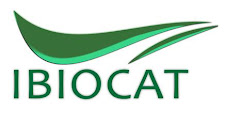Con il Manifesto del Futurismo, Marinetti celebrò la rivoluzione tecnologica dei primi anni del Novecento, esaltando la fiducia illimitata nel progresso, e decretando con impeto la fine delle vecchie ideologie.
Il movimento futurista fu una corrente rivoluzionaria, che esplorò e pervase ogni forma artistica, dalla pittura alla scultura, dalla poesia al teatro, senza trascurare la musica, l'architettura, la danza, la fotografia e la nascente cinematografia.
In sintesi, il Futurismo, primo movimento artistico legato a un'ideologia globale, coinvolse tutti i settori dell'esistenza: arte, politica, costume, morale, progresso scientifico, divenendo in breve tempo uno dei più importanti fenomeni artistico-letterari sviluppatisi in età moderna, sia in Italia, sia in Europa.
I Futuristi ebbero il merito di percepire per primi l'esigenza di un rinnovamento culturale profondo e radicale, in sintonia con i nuovi tempi.
All'inizio del secolo scorso, i Futuristi raffiguravano nelle loro opere la velocità e l'accelerazione, celebrandole con aerei, automobili e navi, rappresentati in prospettive tortuose e vorticose; il movimento, il volo, l'accelerazione, lo spostamento nello spazio erano suggestivi di un'intuizione che sarebbe rimasta riconoscibile per tutto il '900: la velocità nel cambiamento del mondo.
A quasi cent'anni dalla pubblicazione del Manifesto del Futurismo, l'Italia si appresta a celebrare la sua unica avanguardia storica.
Nello spirito del suo motto "Working together to accelerate a better life", IBIOCAT (Italian Biocatalysis Center), Consorzio pubblico/privato nato con l'obiettivo di diffondere in modo trasversale e pervasivo la cultura della Biocatalisi in Italia e nel mondo, nell'ottica di imprimere una spinta propulsiva alla qualità della vita in senso lato, uscendo dai termini prettamente scientifici della questione, per privilegiare la dimensione sociale, nonché l'applicazione "umanistica" del concetto di Biocatalisi, non poteva ignorare il centenario di un movimento, che ha fatto dell'accelerazione, del dinamismo, dell'innovazione e del cambiamento i suoi valori fondanti.
Di seguito si riporta il calendario degli Eventi più rilevanti, organizzati in occasione del Centenario del Manifesto del futurismo.
FUTURISMO100, trittico di esposizioni complementari, inaugura il suo percorso scientifico con la mostra del Mart di Rovereto Illuminazioni - Avanguardie a confronto. Italia, Germania, Russia (17 gennaio-7 giugno 2009); prosegue con Astrazioni al Museo Correr di Venezia (5 giugno-4 ottobre 2009), e si conclude con Simultaneità (15 ottobre 2009-25 gennaio 2010) a Palazzo Reale di Milano:
Futurismo 100: Illuminazioni. Avanguardie a confronto. Italia – Germania - Russia
Mart, Rovereto (TN)
17 gennaio 2009 - 07 giugno 2009
http://www.mart.trento.it/context_mostre.jsp?ID_LINK=9&page=4&area=42
---------------------------------------------------
FUTURISMO100 - Astrazioni
Museo Correr
dal 5 giugno 2009 al 4 ottobre 2009
http://www.museiciviciveneziani.it/frame.asp?musid=184&sezione=mostre
---------------------------------------------------
FUTURISMO100 - Simultaneità. MILANO, PALAZZO REALE
dal 15 ottobre 2009 al 25 gennaio 2010
---------------------------------------------------
FUTURISMO - 1909 - 2009 - Velocità + Arte + Azione
Milano, Palazzo Reale
Piazza Duomo, 1.
Inaugurazione: giovedì 5 febbraio 2009, ore 18
Mostra Futurismo 1909 - 2009 - Milano, Palazzo Reale
http://www.artelabonline.com/articoli/view_article.php?id=3257
---------------------------------------------------
F.T. Marinetti=Futurismo
Milano, 12 febbraio -7 giugno 2009
Fondazione Stelline - Sala del Collezionista
Milano, Corso Magenta 61
http://www.stelline.it/01_calendario_evento.asp?IDAttivita=49
---------------------------------------------------
Futurismo.Avanguardia-Avanguardie
Scuderie del Quirinale, Roma
20 febbraio - 24 maggio 2009
http://www.articoweb.it/evidenza/futurismo-avanguardia-avanguardie-alle-scuderie-del-quirinale-di-roma
---------------------------------------------------
Il 17 gennaio 2009 riapre al pubblico la Casa d'Arte Futurista Depero- è il primo e unico museo futurista d'Italia, nato da una originalissima visione di Fortunato Depero che la fondò nel 1957,con l'aiuto fondamentale del comune di Rovereto.. Le... continua »
----------------------------------------------------
Depero. Opere della collezione Fedrizzi
Museo Correr - piazza San Marco, Venezia
dal 1 novembre 2008 al 1 marzo 2009
---------------------------------------------------
Futurismo 1910-1915, il centenario del manifesto
Galleria Di Paolo Arte, Bologna
dal 25 ottobre 2008 al 30 gennaio 2009
----------------------------------------------------
Futurismo e modernita' . Artisti e collezionisti in Lomellina
CASTELLO VISCONTEO SFORZESCO - MUSEO INTERNAZIONALE DELLA CALZATURA - piazza ducale, VIGEVANO (PV)
dal 27 settembre al 14 dicembre 2008
----------------------------------------------------
Balla pittura. Balla scultura.
Galleria Fonte d'Abisso - Milano
dal 16/10/2008 al 24/01/2009
Milano - Galleria Fonte d'Abisso Arte
------------------------------------------------------
Futurismi
Centro Saint-Benin - Aosta
dal 28/11/2008 al 26/04/2009
-------------------------------------------------------
Altri Eventi dedicati al Futurismo, a Milano
Oltre agli eventi citati, Milano, che ha dato i natali al Futurismo (la prima sede ufficiale del movimento era in via Senato 2, casa di Marinetti), organizza un ricchissimo programma con manifestazioni di teatro, cinema, danza, moda, che faranno della città per tutto il 2009 la capitale del Futurismo.
Alcuni esempi:
--------------------------------------------------------
Per informazioni sui Musei che ospitano permanentemente opere futuriste, si consiglia di visitare il sito:
http://www.futurismo.altervista.org/mostre.htm
-------------------------------------------------------
Laura Cipollina - IBIOCAT, Divisione Marketing e Commerciale
